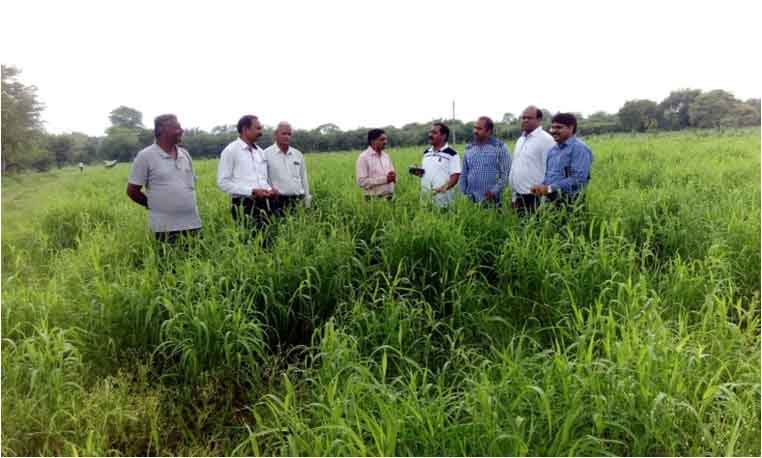
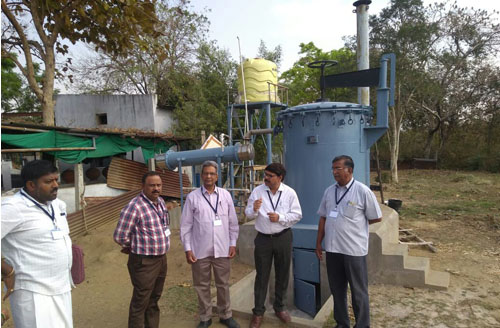
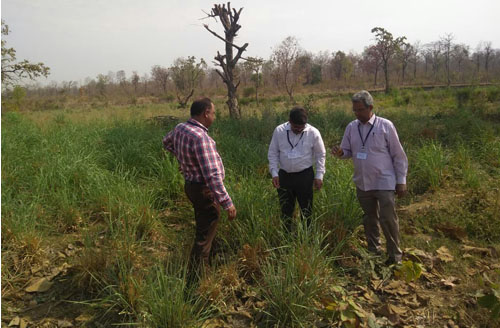
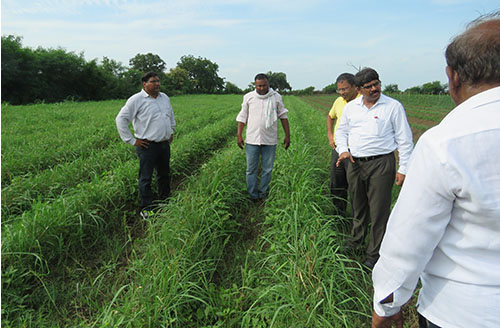
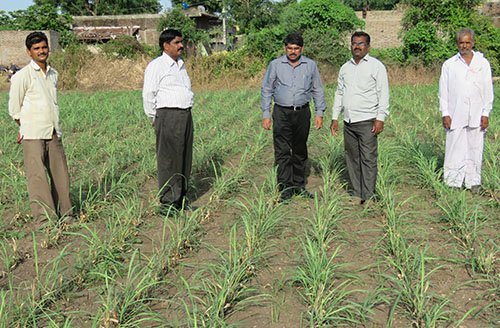





Promoting drought-tolerant remunerative aromatic crops in Vidarbha and Bundelkhand
The frequent and consecutive drought years in the Bundelkhand region of Uttar Pradesh had unearthed huge crop losses, starvation and deaths due to hunger and inability of farmers to repay the loans. Frequent rain deficits have further aggravated farm distress due to crop failures. As a result, many districts of Bundelkhand stare at acute famine with widespread crop losses every year. Under these conditions, many heads of livestock have also perished due to starvation because of acute scarcity of fodder. Also, very frequently, Maharashtra is shaken by such conditions, especially in Vidarbha and Marathwada regions. The major reason again is the Agrarian crisis. As most of the crops in these regions are rainfed, low rainfall during the past many years has put the crop cultivation vulnerable to the vagaries of weather and at higher risk. The frequent crop failures and increasing cost of labour and agri-inputs have drastically reduced the farm incomes leading to farmers’ distress.
To overcome the crop failures and losses because of frequent episodes of droughts, there is an urgent need of introducing crops, which can tolerate enhanced levels of stresses and provide sufficient returns from the small farmlands, enough to sustain the livelihood of farmers. Aromatic crops like Lemongrass, Palmarosa and Vetiver can grow even under acute water scarcity and have the ability to survive under severe/prolonged drought conditions.
Some drought-tolerant crops have been introduced there last year over an area of 100 acres which will hopefully be sufficient to provide planting material to the farmers of that region for 1000 acres. CSIR under its Aroma Mission has introduced such crops in these regions for providing farmers with economically beneficial alternatives to the traditional crops. Our initial observations clearly indicate that the income of the farmers can be easily enhanced to a tune of 40-50% by these crops. Aromatic crops have additional advantages of not being affected by wild animals and can be co-cultivated even with some of the food crops. The major activities being undertaken under the programme are:-

